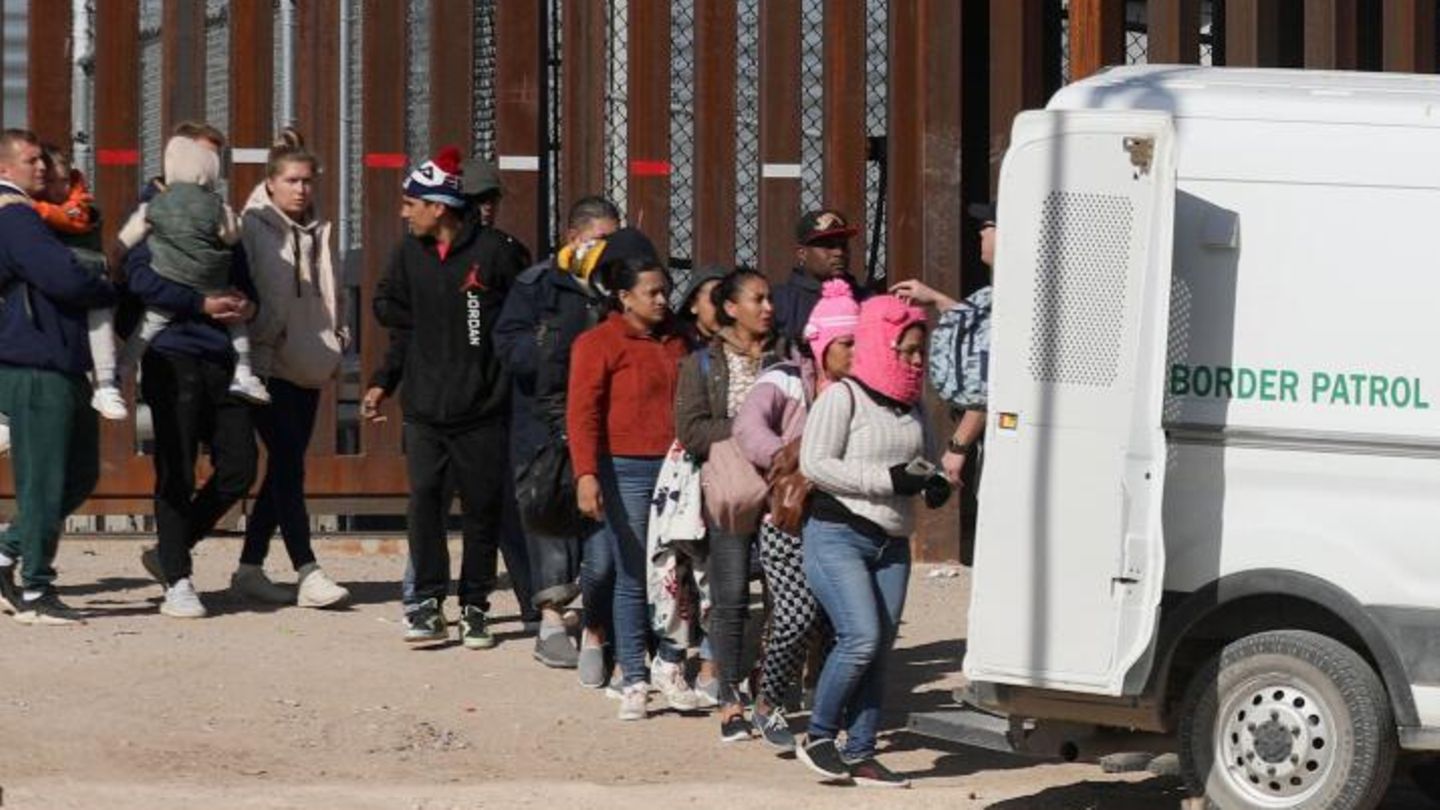When the Supreme Court decision reaches the US border, disappointment is great. The controversial deportation regulation “Title 42” remains in place for the time being. Human rights organizations are now sounding the alarm.
Like so many on the Mexican side of the US border, Guatemala’s Daisy Rezino was hoping for better news. There is no turning back for the young mother who is waiting with her two young daughters to make it to the USA. “We went through a lot to get here,” reports the 26-year-old “”. Together with hundreds of others, she had waited in temporary tent cities near the Rio Grande for the controversial deportation regulations to be lifted soon.
But the Supreme Court wants to uphold the rule known as Title 42 from the time of ex-President Donald Trump for the time being. With a majority of conservative judges, the court on Tuesday granted a motion by 19 states that said they would face a migrant onslaught if vacated. A final judgment could not be made until June.
Human rights activists criticize controversial deportation regulations
The White House reacted disappointed to the court decision. An end to Title 42 is overdue, US President Joe Biden told reporters. However, his government will comply with the Supreme Court’s decision. Based on the regulation, hundreds of thousands of people were deported to the southern border of the USA during the corona pandemic. To prevent the virus from spreading further, migrants caught at the border were immediately sent back.
Government spokeswoman Karine Jean-Pierre also emphasized that the government is already preparing for the moment when the deportation regulation expires. Title 42 is “a health measure, not an immigration measure, and should not be extended indefinitely,” she said. What is needed instead is a comprehensive reform of immigration laws.
Meanwhile, sharp criticism came from human rights organizations. They point out that people at the border are being deprived of their right to apply for asylum under a pretext. “We all know that Title 42 has nothing to do with the pandemic,” criticized Ruben Garcia, who oversees several refugee shelters in El Paso, in an interview with the “”. “It’s an immigration policy enforcement tool used to deny people access to asylum.”
Several refugee lawyers said they would continue the fight against Title 42 in court. “We are deeply disappointed by the desperate asylum seekers who continue to be denied the opportunity to show they are in danger,” Lee Gelernt, a lawyer with the American Civil Liberties Union, told the broadcaster.
migrants from Haiti
“Horrifying images”: US border guards on horseback drive refugees back
Republicans oppose repeal of Title 42
In December it had come to a head. Within ten days, more than 9,000 migrants were arrested three times a day – a new record. On December 11 alone, around 1,500 people crossed the Rio Grande from the Mexican city of Ciudad Juárez to El Paso in Texas. The mayor of El Paso declared a state of emergency due to the enormous rush. Most accommodations are at the limit and can no longer take anyone, local newspapers report.
Many refugees like Daisy Rezino have no choice but to spend the nights on the streets in the current minus temperatures. “I don’t understand why they treat us like this,” says the young mother. “If only they could see how we have to sleep here with nothing to eat and no roof over our heads.”
The Biden government itself had long adhered to the controversial Title 42 rule. Only in April of this year did the administration announce that it intended to lift the regulation in May. That was blocked by a federal judge in southern Louisiana after a lawsuit by Republican-governed states, so Title 42 remained in effect. In November, a federal judge in Washington ruled that the regulation must be repealed. However, conservative-led states again appealed to the Supreme Court against this decision.
For many, like 28-year-old Haiti’s Roodline Pierre, the hope of crossing the border anytime soon has been dwarfed by the court’s decision. “We can’t go back,” describes Pierre der “” the catastrophic conditions in his home country, from which he fled with his wife and small child. “We left everything to be here.”
Sources: “”, “”, “”, with AFP material
Source: Stern
David William is a talented author who has made a name for himself in the world of writing. He is a professional author who writes on a wide range of topics, from general interest to opinion news. David is currently working as a writer at 24 hours worlds where he brings his unique perspective and in-depth research to his articles, making them both informative and engaging.




